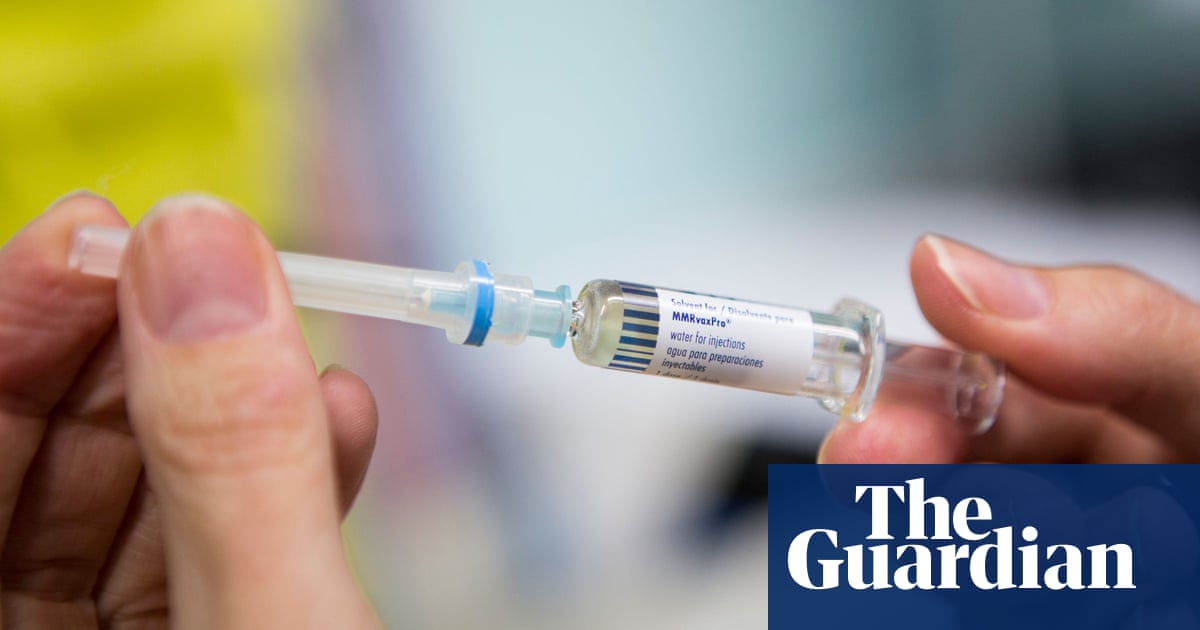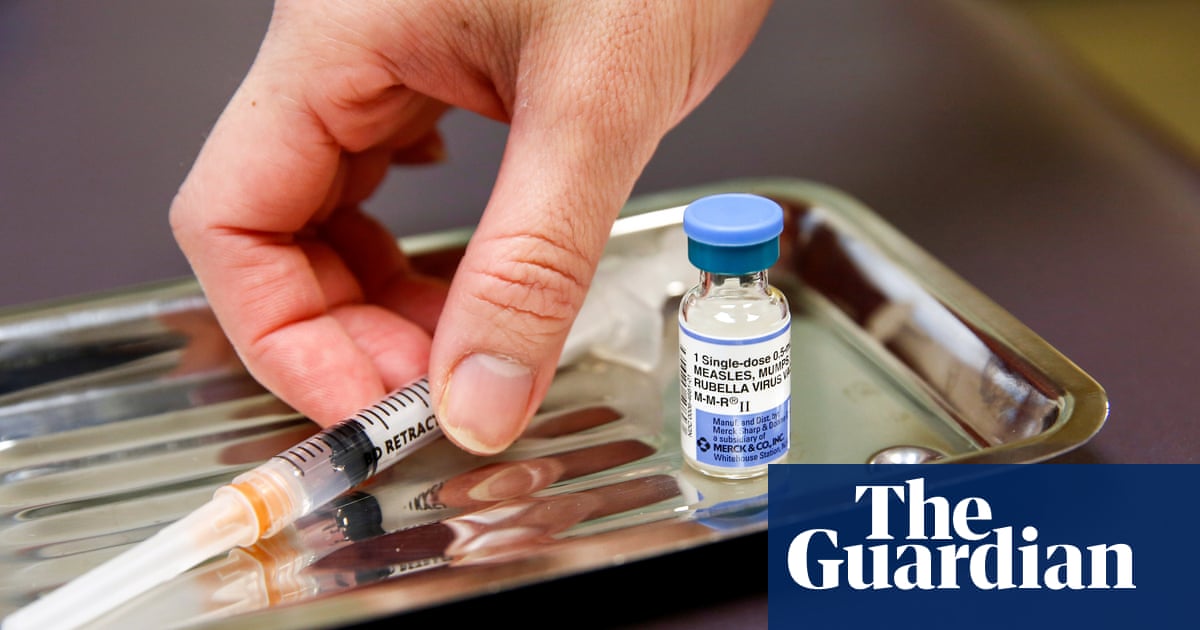
Parents are being urged to get their children vaccinated against measles, mumps and rubella (MMR) after a “worrying” drop in uptake of key vaccines.
Figures from NHS England and the UK Health Security Agency (UKHSA) show 92.5% of children had had the first dose of the MMR jab at five years old by 2022-23, the lowest since 2010-11.
The proportion of five-year-olds who had had the second jab by 2022-23 was 84.5%, also the lowest level since 2010-11.
Vaccination programmes across England failed to meet the uptake recommended by the World Health Organization (WHO) for the year 2022-23. WHO recommends that, nationally, at least 95% of children should be inoculated for diseases that can be stopped by vaccines, in order to prevent outbreaks.
NHS data showed no routine vaccine programme met the threshold during the 12-month period. Dr Gayatri Amirthalingam, a consultant medical epidemiologist at UKHSA, said the downward trend was a “serious concern”.
“The diseases that these vaccines protect against, such as measles, polio and meningitis, can be life-changing and even deadly,” she said. “No parent wants this for their child especially when these diseases are easily preventable. Please don’t put this off, check now that your children are fully up to date with all their vaccines due. Check your child’s red book and get in touch with your GP surgery if you are not sure.”
In the UK, babies are offered immunisation against meningitis B and rotavirus at eight weeks old, and are also given the “six-in-one” jab, which helps fight polio, tetanus, whooping cough, diphtheria, hepatitis B and haemophilus influenzae type b – a bacteria that can cause life-threatening infections. The doses are topped up at 12 weeks and 16 weeks.
One-year-olds should receive the first dose of the MMR jab, along with the Hib/MenC vaccine, which protects against haemophilus influenzae type b (Hib) and meningitis C. They are also offered a second dose of the pneumococcal vaccine and further protection against meningitis B.
The second dose of the MMR is offered at three years and four months.
In 2022-23, 91.8% of babies in England had the six-in-one vaccine by their first birthday, with 93.7% up to date with the pneumococcal vaccine and 91% protected against meningitis B. Only 88.7% were vaccinated against rotavirus, which can cause diarrhoea in infants.
Dr Doug Brown, the chief executive of the British Society for Immunology, said England continued to miss key targets. “It is particularly worrying that today’s statistics show that only 84.5% of children receive the second MMR vaccine dose by age five – well below the 95% level recommended by the WHO.
“Measles is one of the world’s most contagious diseases and cases are currently on the rise in England. We must ensure that vaccination rates improve to stop the spread of measles and give our communities the best possible protection available against this serious illness.”
Steve Russell, the NHS director of vaccinations and screening, said: “The NHS continues to encourage and support parents and carers to ensure their children are up to date with their vaccinations to protect them against becoming seriously unwell from infectious diseases.”
A Department of Health and Social Care spokesperson said: “It is vital that routine childhood vaccinations are up to date as this remains one of our best defences for public health. The UK has a world-leading offer and we have run multiple catch-up campaigns to improve coverage – including a national catch-up campaign for MMR and London-specific campaigns for MMR and polio.
“We urge parents and carers to check that their children are up to date on their vaccines and if not they should book an appointment to catch up.”












